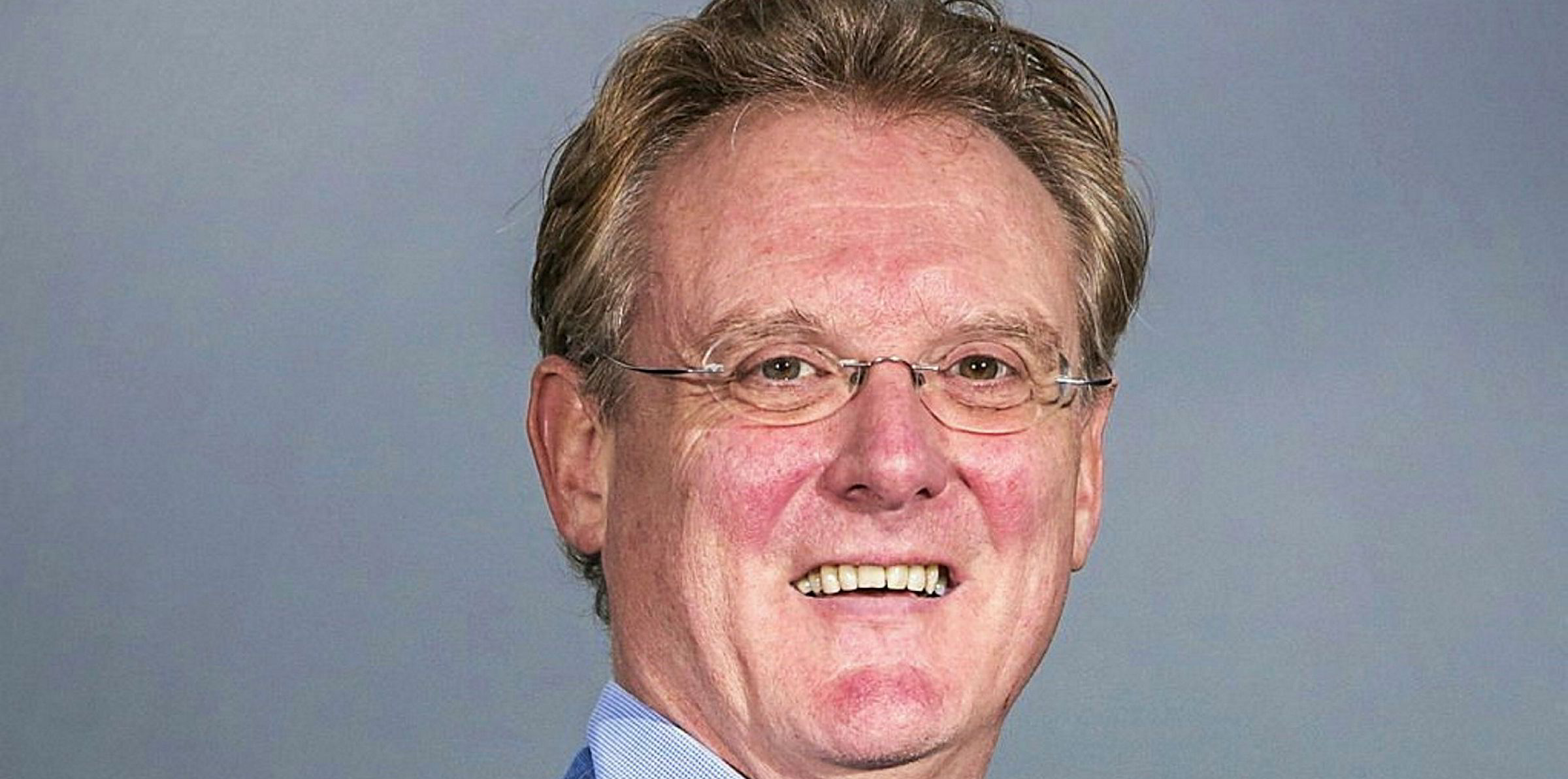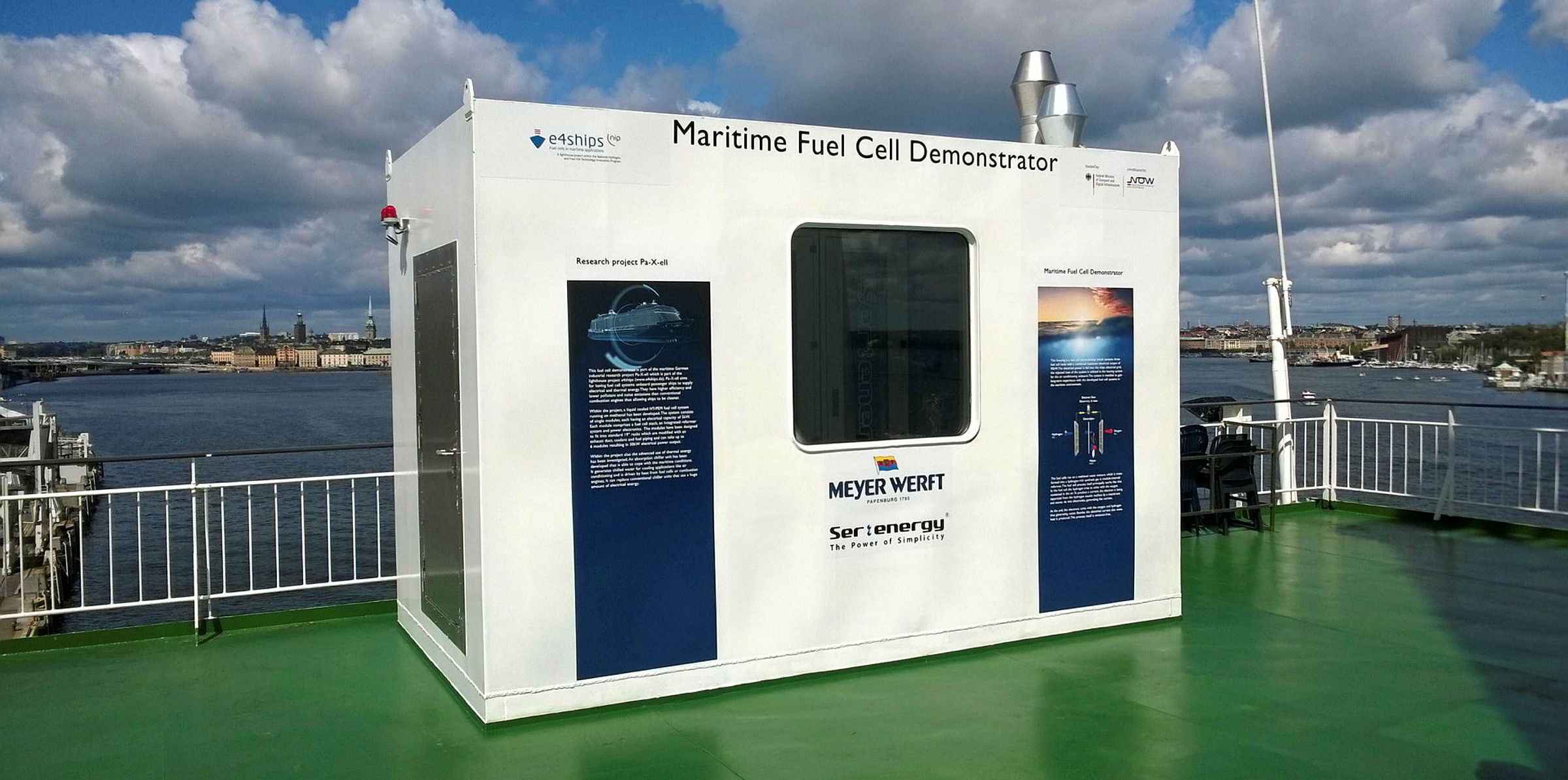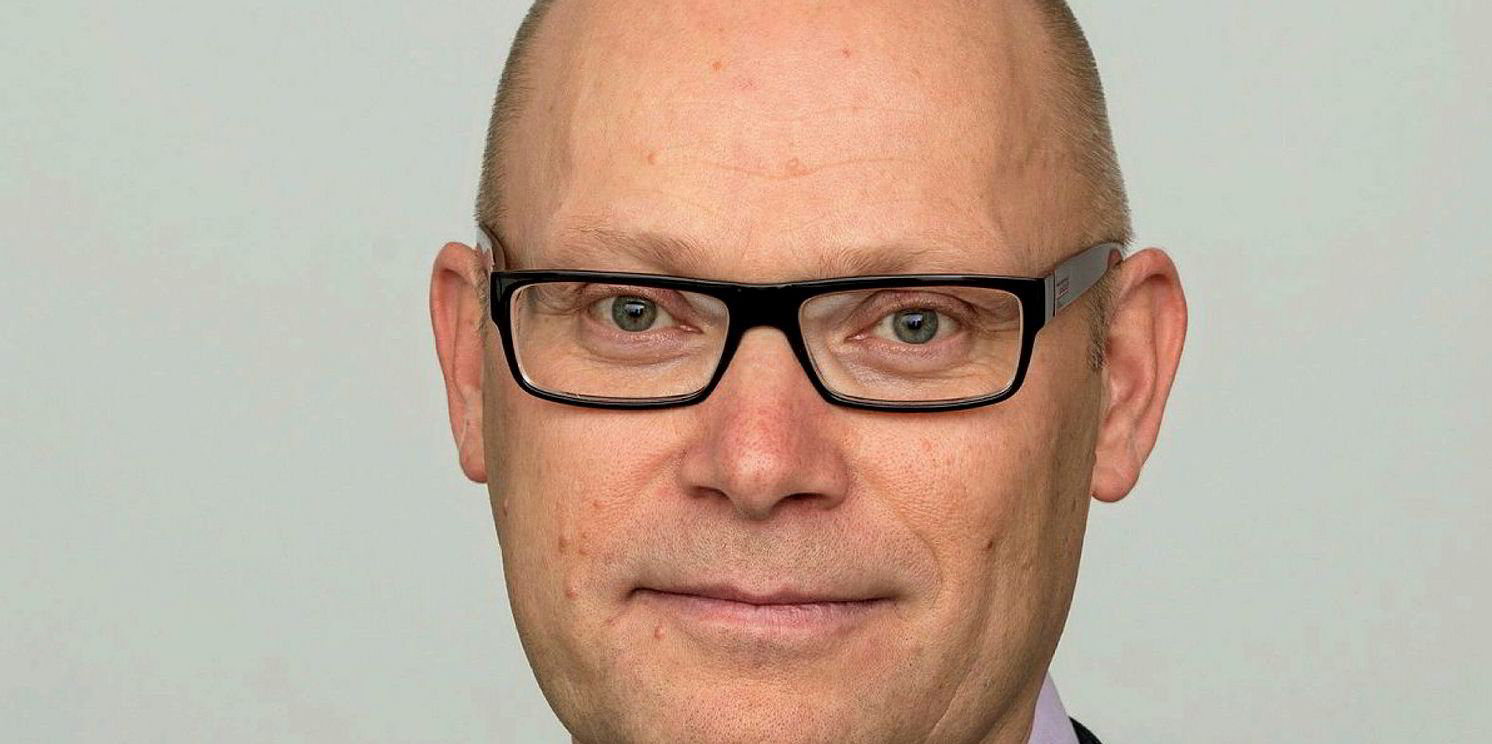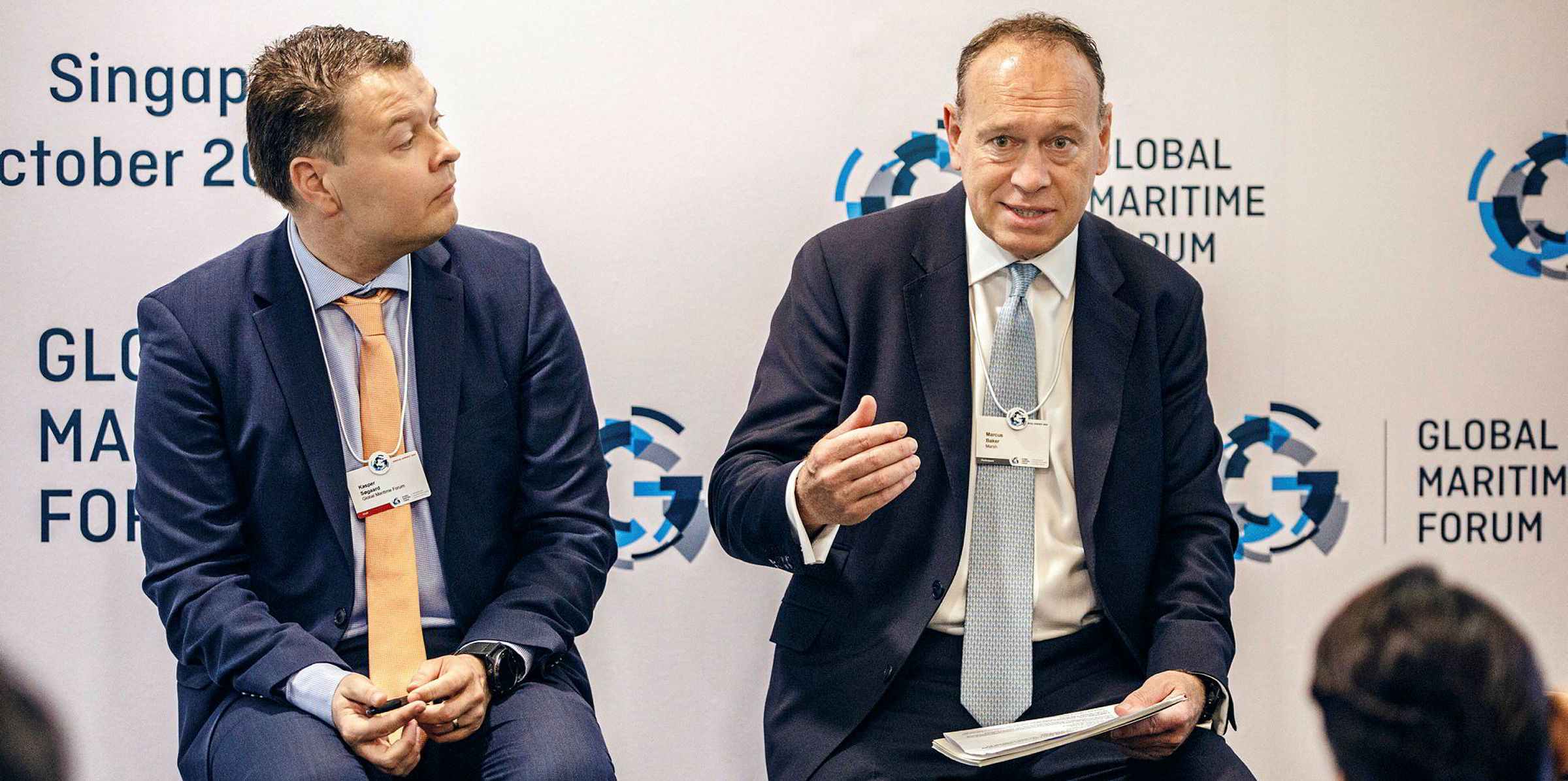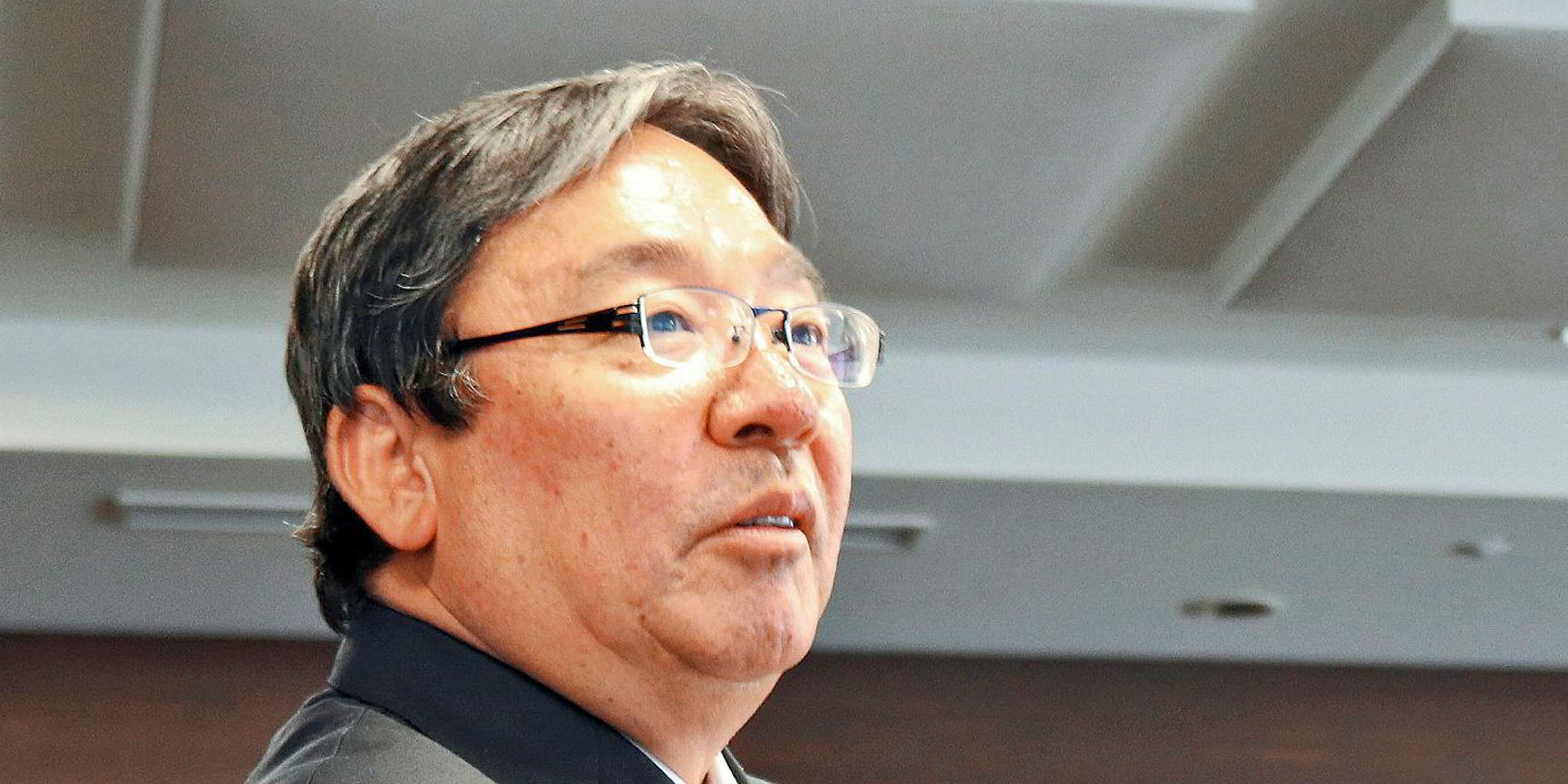Rotterdam-based Future Proof Shipping (FPS) is a consultancy that wants to put its money where its mouth is.
Spun off from Dutch non-profit organisation Enviu’s research efforts in 2016 , FPS has provided advisory and project development support to companies interested in waterborne transport means that emit no greenhouse gas (GHG) emissions.
Now, the venture is aiming to build a fleet of 10 zero-emission vessels in the next five years.
CEO Richard Klatten said FPS will operate the six inland, two shortsea and two oceangoing ships based on long-term time charters to operators, logistics service providers, cargo owners and shippers.
“As well as demonstrating that zero-emission propulsion is technically and commercially feasible, we are also a tonnage provider,” Klatten told TradeWinds.
“We do this by retrofitting existing diesel-propelled ships in partnership with other investors or their current owners who are looking to adopt a zero-emission business model.
“The vessels could also be newbuilds and will be owned by FPS, or in partnership with other investors or vessel owners.”
He did not elaborate further on the sources of funding. However, Klatten confirmed that FPS has embarked on a pilot project to install an electric drive train system aboard a small inland vessel that carries containers between Rotterdam and Belgium.
The MSC Mass, which has a length overall of 110 metres and width of 11.5 metres, is set to have fuel cells and batteries powered by hydrogen in the coming months. Despite its name, the ship is owned by FPS and is not known to have any link to Mediterranean Shipping Co.
“Retrofitting existing vessels is crucial in fast forwarding the transition to a zero-emissions shipping future,” Klatten said. “Our aim is to first prove to shipowners that zero-emission shipping is possible.”
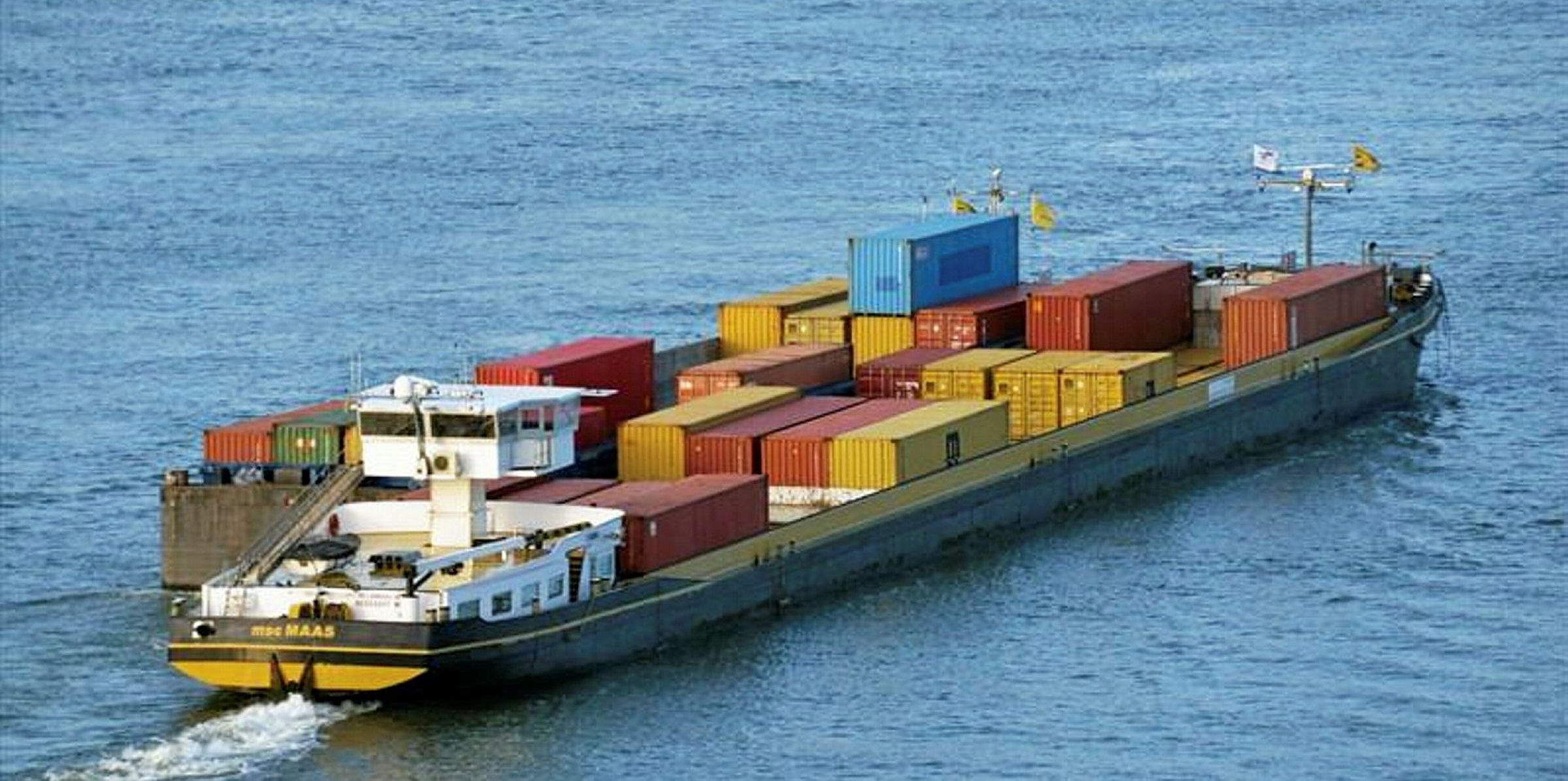
Future vision
FPS believes that shipowners can have more flexibility by electrifying the drive train. This will enable the use of batteries, fuel cells in combination with hydrogen, among other energy options.
“[This] can be the first step towards zero-emissions for the harder-to-decarbonise subsectors and vessel types,” Klatten said.
“If there is new fuel cell or battery technology available in the next decade, the propulsion system could be easily upgraded.”
To combat climate change, the International Maritime Organization has targeted to halve GHG emissions from international shipping by 2050. Many industry participants believe new types of marine fuels need to be developed to reach the goal.
While seeing an important role of hydrogen generated from renewable energy in this decarbonisation drive, FPS reckons that liquid organic hydrogen carriers combined with batteries would be a better option than hydrogen combustion.
This is due to NOx emissions from combustion.
“With regards to the sailing and fuelling of our ships, zero emissions means zero GHG emissions,” Klatten said.
When building its zero-emission fleet, FPS has promised to take into consideration the life-cycle emissions of marine equipment and power systems aboard from the request-for-quotation stage.
But Klatten also warns that overindulgence in debates over the well-to-wake environmental impact could be counterproductive.
“While more macro-level discussions on emissions calculations are important to follow, complex calculation debates can sometimes be an attempt to slow or even stop progress completely,” he said. “We cannot let these discussions hold us back.”
